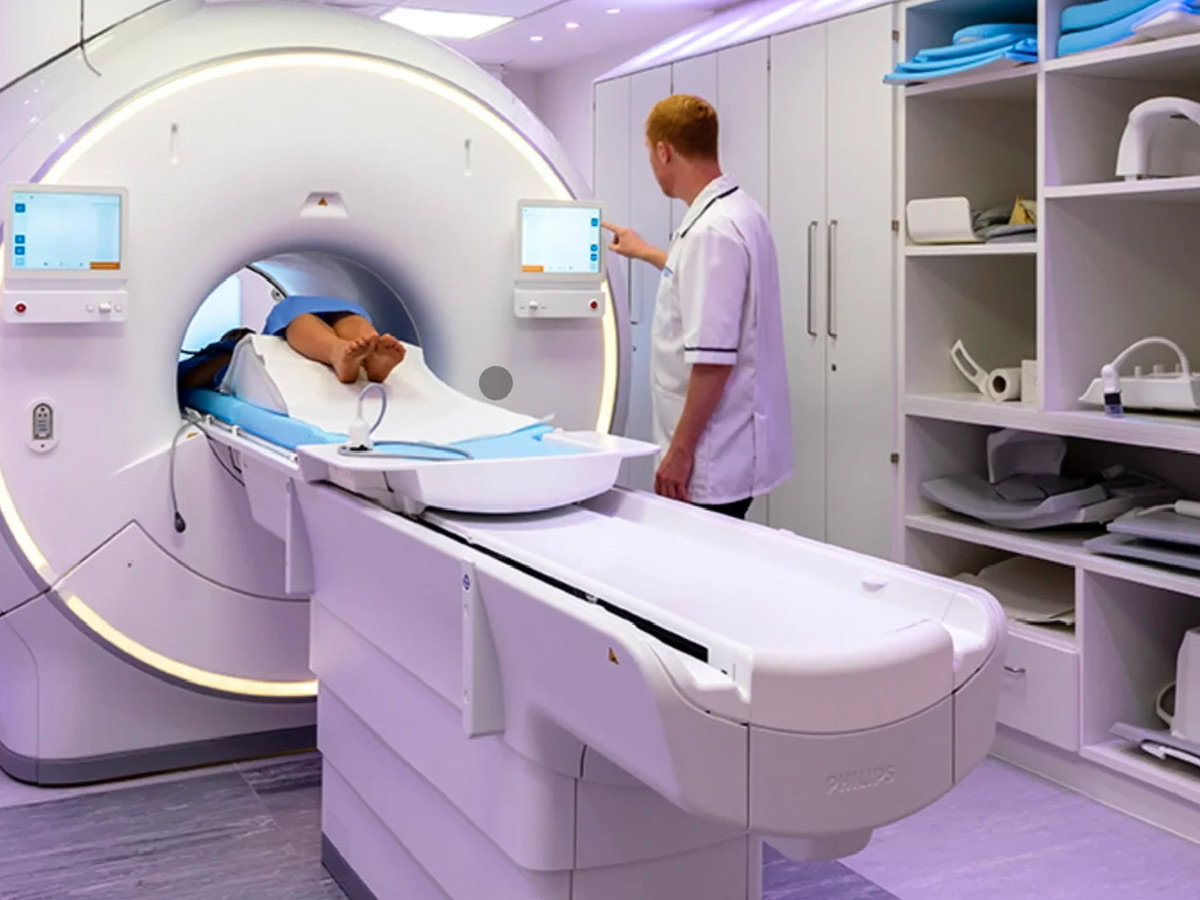MRI Scans
An MRI scan provides high-resolution images of soft tissues, bones, and organs using a strong magnetic field and radio waves. It is commonly used for detecting injuries, tumors, and neurological disorders. The procedure is safe and painless, though it may take 15–90 minutes depending on the area being examined.
What is MRI Scan?
An MRI (Magnetic Resonance Imaging) scan is a non-invasive medical imaging technique that uses powerful magnets and radio waves to create detailed images of the body's internal structures, such as the brain, spine, joints, and organs. It helps diagnose various conditions without using radiation.
Best MRI scans with advanced technology, delivering clear, accurate, and detailed imaging for brain, spine, knee, abdomen, pelvis, and whole-body MRI tests. We provide affordable MRI scan prices with fully transparent billing and no hidden charges. Whether you are searching for the best MRI in Ghaziabad, best MRI in Muradnagar, best MRI in Loni, best MRI in Baghpat, best MRI in Baraut, or best MRI in Govindpuram, we ensure top-quality diagnostics and expert radiologist reporting for every test.
MRI Scan Price List
Here is a general price list for different types of MRI scans. Prices may vary based on location, hospital, and additional contrast requirements:
1. Why is an MRI Scan Performed?
An MRI scan is performed to diagnose and monitor various medical conditions by providing detailed images of internal organs, tissues, and bones. It is commonly used for:
- Detecting brain and spinal cord disorders (e.g., strokes, tumors, multiple sclerosis)
- Examining joint and muscle injuries (e.g., ligament tears, arthritis)
- Identifying tumors and abnormal growths in organs
- Evaluating heart and blood vessel conditions
- Diagnosing issues in the liver, kidneys, and other internal organs
2. Types of MRI Scans
MRI scans are categorized based on the area of the body being examined and the type of imaging technique used. Here are the main types:
- Brain MRI - Used to detect tumors, strokes, multiple sclerosis, aneurysms, and other neurological conditions.
- Spine MRI - Examines spinal cord injuries, herniated discs, pinched nerves, and spinal infections.
- Musculoskeletal MRI - Assesses joints, muscles, ligaments, and bones for injuries, arthritis, and other disorders.
- Cardiac MRI - Provides detailed images of the heart and blood vessels to diagnose heart conditions, blockages, and congenital defects.
- Abdominal MRI - Scans organs like the liver, kidneys, pancreas, and intestines to detect tumors, infections, or other abnormalities.
- Pelvic MRI - Used to evaluate reproductive organs, bladder, and prostate in men and women for conditions like fibroids or tumors.
- Breast MRI - Often used alongside mammograms to detect breast cancer and other abnormalities.
- Functional MRI - Measures brain activity by detecting changes in blood flow, often used in neuroscience research and pre-surgical planning.
3. How to Prepare for an MRI Scan?
Preparing for an MRI scan is simple, but following the right steps ensures a smooth procedure and accurate results. Here’s what you need to do:
- Wear comfortable, loose-fitting clothing without metal accessories.
- Avoid eating or drinking a few hours before the scan if a contrast dye is used.
- Inform your doctor about any allergies, pregnancy, or existing medical conditions.
- Remove any metallic objects such as jewelry, glasses, or dentures before the scan.
4. What to Expect During the Procedure?
MRI scans are tailored to capture detailed images of different body parts. Here’s what happens during the procedure:
- Positioning - The patient lies on a motorized table that slides into the MRI machine.
- Scanning Process - The machine creates a strong magnetic field and radio waves to capture detailed images.
- Contrast Dye (if required) - In some cases, a contrast agent (gadolinium) is injected to enhance image clarity.
- Completion - The scan usually takes 15-90 minutes, depending on the area being examined.
5. Are MRI Scans Safe?
MRI scans are generally very safe as they do not use radiation. Instead, they rely on magnetic fields and radio waves to create detailed images. The benefits usually outweigh any risks, especially for accurate diagnosis.
6. Advantages of an MRI Scan
MRI scans offer several benefits for diagnosing and monitoring medical conditions:
- Non-invasive & Radiation-Free - Uses magnetic fields and radio waves instead of X-rays.
- High-Resolution Imaging - Provides detailed images of soft tissues, organs, and joints.
- Early Detection of Diseases - Helps identify tumors, neurological disorders, and internal injuries.
- Safe for Repeated Use - No radiation exposure makes it suitable for follow-up scans.
- Effective for Brain & Spinal Analysis - Ideal for detecting strokes, multiple sclerosis, and spinal injuries.
7. Book Your MRI Scan Today
If you need a MRI scan for diagnosis or treatment planning, contact our imaging center for a professional consultation. Our state-of-the-art facilities ensure high-quality imaging and expert medical care to support your health and well-being.
For appointments and inquiries, reach out to us today!
Book Appointment